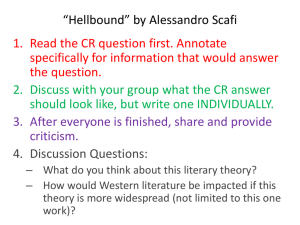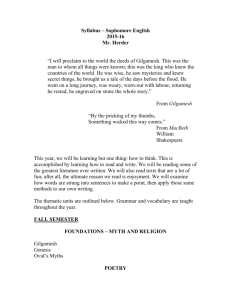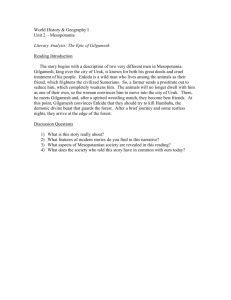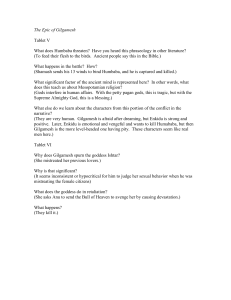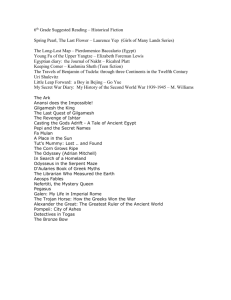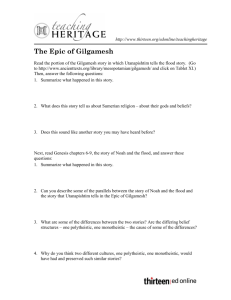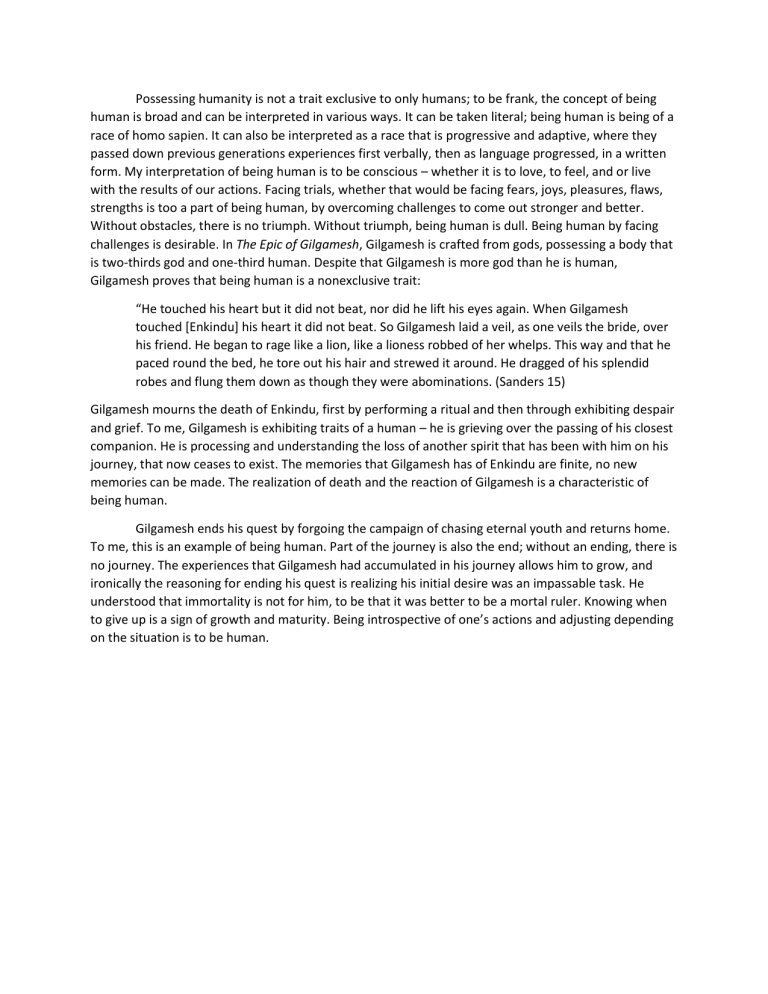
Possessing humanity is not a trait exclusive to only humans; to be frank, the concept of being human is broad and can be interpreted in various ways. It can be taken literal; being human is being of a race of homo sapien. It can also be interpreted as a race that is progressive and adaptive, where they passed down previous generations experiences first verbally, then as language progressed, in a written form. My interpretation of being human is to be conscious – whether it is to love, to feel, and or live with the results of our actions. Facing trials, whether that would be facing fears, joys, pleasures, flaws, strengths is too a part of being human, by overcoming challenges to come out stronger and better. Without obstacles, there is no triumph. Without triumph, being human is dull. Being human by facing challenges is desirable. In The Epic of Gilgamesh, Gilgamesh is crafted from gods, possessing a body that is two-thirds god and one-third human. Despite that Gilgamesh is more god than he is human, Gilgamesh proves that being human is a nonexclusive trait: “He touched his heart but it did not beat, nor did he lift his eyes again. When Gilgamesh touched [Enkindu] his heart it did not beat. So Gilgamesh laid a veil, as one veils the bride, over his friend. He began to rage like a lion, like a lioness robbed of her whelps. This way and that he paced round the bed, he tore out his hair and strewed it around. He dragged of his splendid robes and flung them down as though they were abominations. (Sanders 15) Gilgamesh mourns the death of Enkindu, first by performing a ritual and then through exhibiting despair and grief. To me, Gilgamesh is exhibiting traits of a human – he is grieving over the passing of his closest companion. He is processing and understanding the loss of another spirit that has been with him on his journey, that now ceases to exist. The memories that Gilgamesh has of Enkindu are finite, no new memories can be made. The realization of death and the reaction of Gilgamesh is a characteristic of being human. Gilgamesh ends his quest by forgoing the campaign of chasing eternal youth and returns home. To me, this is an example of being human. Part of the journey is also the end; without an ending, there is no journey. The experiences that Gilgamesh had accumulated in his journey allows him to grow, and ironically the reasoning for ending his quest is realizing his initial desire was an impassable task. He understood that immortality is not for him, to be that it was better to be a mortal ruler. Knowing when to give up is a sign of growth and maturity. Being introspective of one’s actions and adjusting depending on the situation is to be human.
